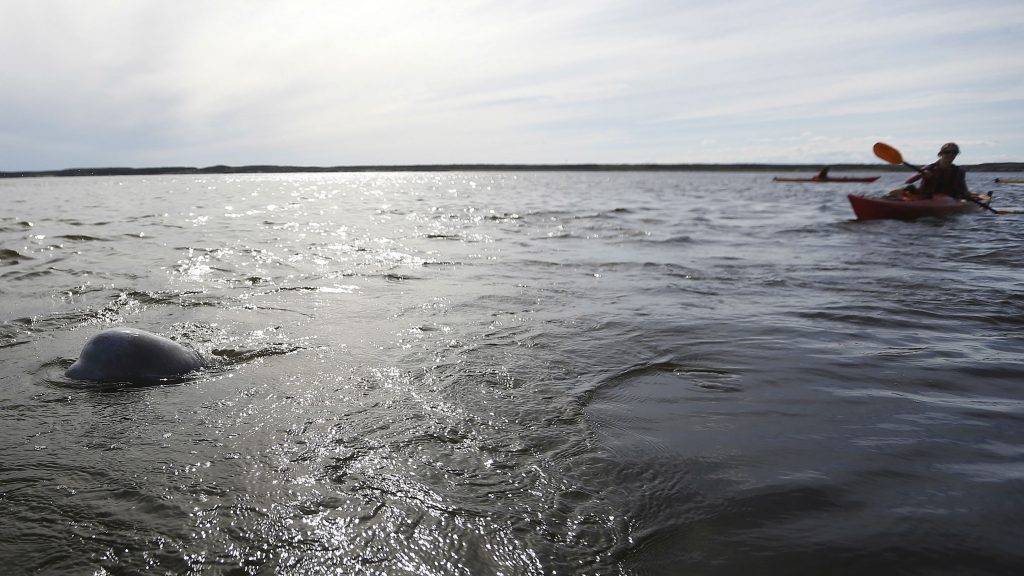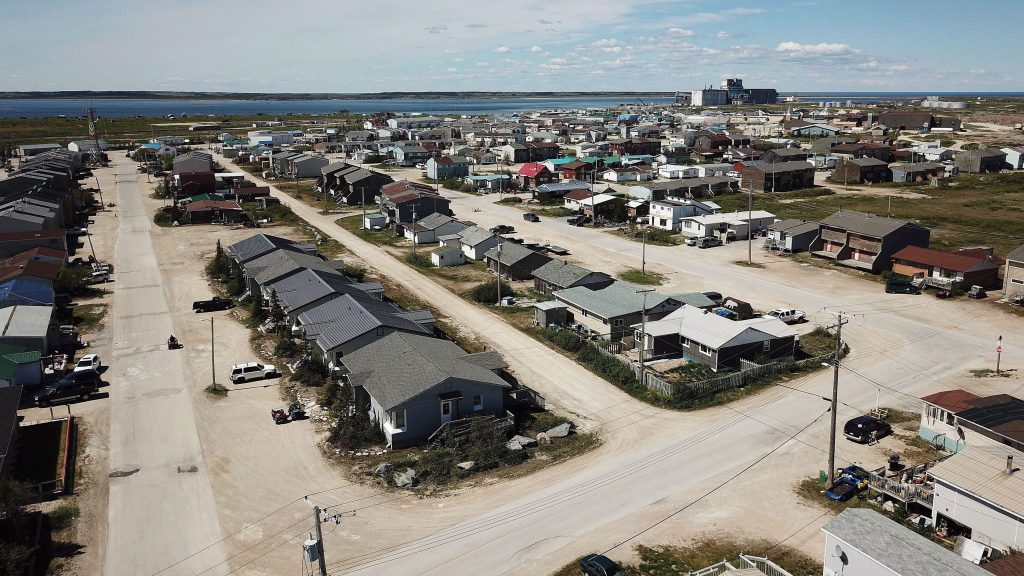Interactive Canadian ebook seeks to make Arctic climate science accessible

An interactive ebook focused on research in Canada’s Hudson Bay area, and its wider connection to the Arctic, has been released in an effort to make climate science more accessible to the general population.
“Scientific information is quite often not accessible to the public or the policy makers because none of them read peer-reviewed journals,” said David Barber, Canada Research Chair in Arctic-System Science at the University of Manitoba and one of the people behind the project.
“So we took it upon ourselves to translate these very jargon-filled peer-reviewed publications and put it into an accessible format so that people could have the up-to-date knowledge [that] the scientific world has about the realities of climate change,” Barber told Eye on the Arctic in a phone interview.
Interactive experience
The Expedition Churchill: A Gateway to Arctic Research ebook is part of Expedition Churchill, an outreach program from the University of Manitoba’s Centre for Earth Observation and Science.
Churchill is a town of around 900 people in north-eastern Manitoba on the Hudson Bay coast and is well known for its polar bear tourism.
Project partners include VIA Rail, The Town of Churchill, the Churchill Northern Studies Centre (CNSC), Assiniboine Park Zoo and Travel Manitoba.

The book includes 10 chapters on everything from sea ice to the Arctic food chain and includes video, interactive graphics and audio of researchers explaining their science in plain language.
Besides the ebook, the Expedition Churchill project includes interactive kiosks across Manitoba and interactive tabletops in the VIA Rail passenger train between Winnipeg and Churchill.
“People from all over the wold travel [to Churchill] to see the belugas, the northern lights, to go birding on the Hudon Bay lowlands and, or course, to see the polar bears,” Barber said.
“These tourists are a valuable component of our society in terms of their engagement and involvement with the whole climate change arena. We wanted to make sure that tourists understood what it was they were seeing and what the scientific realities of climate change are in the North.”
Hudson Bay, a model for High Arctic

The research done in Canada’s Hudson Bay area is especially important as a model for how climate change may affect the Far North, says Barber.
As an inland sea surrounded by a continent, researchers say Hudson Bay provides an important model for what might happen in the Arctic Ocean as the climate warms.
“Hudson Bay is actually a very good analogue of what the near future of what the High Arctic system looks like,” said Barber. “And this ebook explores this concept providing details about how Hudson Bay functions.
“We learn from this sub-Arctic sea about what’s happening in the High Arctic.”
Passenger rail service resumes

The ebook was launched on Friday to coincide with the resumption of passenger service to northern Manitoba, with the first train leaving on Sunday.
The service was suspended in May 2017 after severe flooding damaged rail tracks.
The Expedition Churchill ebook is available on the App Store, Google Play or can be downloaded for desktop.
More information is available on the Expedition Churchill website.
Write to Eilís Quinn at eilis.quinn(at)cbc.ca
Related stories from around the North:
Canada: Dramatic changes to Yukon glaciers a warning for the planet, researchers say, CBC News
Finland: Finnish parties find consensus at cross-party climate summit, Yle News
Germany: While Arctic melts, sweltering Germany hosts UN climate talks, Deutsche Welle’s Iceblogger
Norway: Arctic ecosystems face irreversible change without fast climate action, UN report says, The Independent Barents Observer
Russia: Monchegorsk, Russia: a mining town with green aspirations, Cryopolitics Blog
Sweden: Swedish delegation cautiously optimistic ahead of climate conference in Poland, Radio Sweden
United States: Permafrost thawing under Arctic lakes warming climate faster than expected, says study, CBC News



